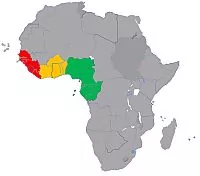Tanzanian brewers have introduced new pricing and smaller packaging for their alcohol brands in response to a government decision in February 2017 to ban packaging of alcohol in sachets. The ban was effected to curb alcohol addiction and tackle tax evasion, but local producers say the policy has made business tougher in the industry.
Main Findings
- Tanzania Breweries, the market leader, now sells its beer brands in 375ml bottles priced at US$0.8 in addition to the old 500ml bottles priced at US$1. Other competitors such as Serengeti have also followed suit to stay competitive. In April, Tanzania Breweries said it planned to trim its staff to offset the fall in revenue while smaller producers who package in sachets alone have been put out of business. Those affected say the ban allowed little time for them to clear their stock and has led to a loss of jobs in the industry.
- The government banned the packaging of alcohol in sachets in February 2017 amid concerns about public health, environmental sanitation and tax evasion. Cheap spirits sold in sachets were reportedly being abused even by underage youths and the littered sachets had become a waste burden. The government also claimed that unlicensed producers and importers of the sachet drinks were costing the government US$268 million in unpaid taxes yearly. On 1 March authorities began a crackdown on defaulters with support from parliament and civil society.
- Alcohol taxes are a major source of revenue for the government. One 2013 report1 suggests that 5% of government revenue in Tanzania comes from alcohol taxes and that excise duty on spirits alone nearly tripled between 2003 and 2013. Increasing taxes on alcohol has been a controversial issue in the industry for the past decade, with some arguing that the strain spurred producers to turn to cheap sachet liquor to boost cash flow.
Outlook
Minister of State in the Vice President's Office (Union Affairs & Environment), January Makamba, has said the government is preparing new legislation to further regulate the packaging of alcohol in the country and stop illegal producers who do not pay tax. This includes a proposal to compel producers to package their products in recyclable bottles with a minimum capacity of 250ml. This move is again another indication of government's resolve to tackle littering and tax evasion, as it looks to shore up revenue to pursue fiscal goals.
Footnotes
1 http://strive.lshtm.ac.uk/sites/strive.lshtm.ac.uk/files/attachments/LL%2023%20Mshana%20Alcohol.pdf
The content of this article is intended to provide a general guide to the subject matter. Specialist advice should be sought about your specific circumstances.

